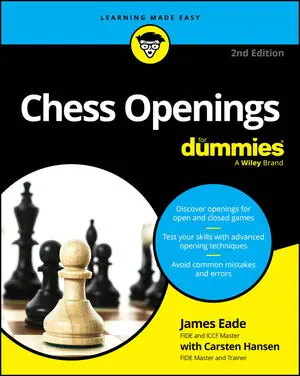To play a tournament game, you should know all the rules of competition (check out the seventh edition of the US Chess Federation's, USCF, rule book) and be familiar with chess etiquette.
Finding tournaments
Normally, tournaments are run by a tournament director and require membership in the US Chess and an entry fee. You can find all of the information you need about the organization, as well as forms for becoming a member, on the US Chess website.U.S. tournaments are advertised in Chess Life, the monthly publication of US Chess, which is included with your membership dues and is available on the website.
Chess Life has a section that includes upcoming events and the names and phone numbers of the tournament directors. This listing will look like Greek to you the first time you see one, because it has all sorts of codes and shorthand. If you're a novice, call the director, tell him that you're an unrated player, and ask any questions you may have. Everyone was a beginner at some point, and tournament directors will take the time to show you the ropes.
Watching your time
You don't need a chess clock in order to play an informal game of chess, but you do need one in order to play a tournament game. (You bring your own clock, chessboard, and chess set to a tournament.)An analog chess clock has two faces (a digital one has two readouts) — one for each player. You depress a mechanism on your side of the clock to start your opponent's clock. Black starts white's clock at the beginning of the game, and after white moves, white stops his own while simultaneously starting black's.
Depending upon the tournament, the length of time allocated (called the time control) for the game varies. Each player may have 90 minutes to make 30 moves, for example, or he may have two hours to make 50. If any player exceeds the time limit while failing to make the minimum number of moves, he forfeits the game. Such a forfeit (called a loss on time) is treated just like any other loss for rating purposes and tournament standing. In other words, losing on time yields the same result as being checkmated.
Earning ratings
Tournament chess in the United States is certified and rated (meaning that everyone gets a numerical evaluation of his performance) by the USCF. Ratings in chess are a measure of expected performance versus known opposition, and they fluctuate based on your results: wins, losses, and draws. Beginners get their initial ratings by playing in tournaments against people with established ratings.The ratings given by the international governing body in chess, called the Fédération Internationale des Échecs (FIDE, pronounced FEE-day), are sometimes referred to as Elo ratings after one of the rating system's prime developers, the American Arpad Elo. The USCF uses a similar rating system, which is generally 50 to 70 points higher than the FIDE one. The FIDE system, however, doesn't rate players below a certain skill level, and treats them as unrated. The USCF system divides the rating population into classes, as shown in here.
The USCF Rating System
| Points | Class |
| 2400 and up | Senior Master |
| 2200–2399 | Master |
| 2000–2199 | Expert |
| 1800–1999 | Class A |
| 1600–1799 | Class B |
| 1400–1599 | Class C |
| 1200–1399 | Class D |
| 1199 and below | Class E |
Note: Conventional wisdom used to hold that the average tournament player has a rating in the Class C range, but this is almost certainly not true. Achieving a rating in the C class is quite an accomplishment, because tournament players tend to be quite serious about their chess. Casual players may be very strong, of course, but usually active tournament players tend to be the strongest in the country.
The USCF class system has led to the development of class prizes. A typical Swiss system tournament offers cash prizes in each of the rating divisions, which allows the organizer to demand high entry fees. This setup can lead to a sort of ruthless competition, which is another reason to start out in clubs or smaller events, where the competition is still fierce — but friendlier.





